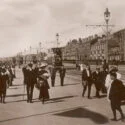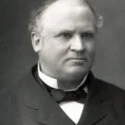The tradition of half-day closing on Wednesdays in the UK is rooted in a combination of historical practices, cultural habits, and labor laws, with a unique connection to archery and the role of seaside resorts like Blackpool. The origin of half-day closing can be traced back to medieval England, where archery was a crucial skill for national defense. The English longbow required significant training, and to ensure a capable military force, King Edward III issued a royal decree in 1363 mandating that all able-bodied men practice archery regularly. This practice was typically held on Sundays and holidays after church services. This decree was reinforced by later monarchs, including Henry VIII, as archery remained vital for national defense. Over time, this practice of mandatory archery evolved into a broader cultural habit of setting aside time for leisure activities, which persisted even as the military necessity of archery waned. By the 19th century, the industrial revolution had transformed the nature of work in England. Long hours in factories, shops, and other businesses were common, with few legal protections for workers. However, the cultural precedent of taking time off for leisure remained influential. This tradition contributed to the introduction of the Shops Act of 1912, which formally established the concept of a “half-day” for retail workers. The law mandated that shops close for half a day each week, typically on a Wednesday, giving workers some guaranteed time off. This half-day was seen as a way to preserve the traditional midweek leisure time that had its roots in archery practice, even though the original purpose had long faded into history.
Blackpool, a popular seaside resort, played a unique role in this tradition through its association with “Wakes Weeks.” Wakes Weeks were periods when factories and mills in Northern England would shut down for a week, allowing workers to take a holiday. Many workers and their families would travel to Blackpool during these weeks, making the town a prime destination. The connection to half-day closing comes from Blackpool’s role in leisure and holiday practices. Workers who enjoyed a Wednesday afternoon off might use that time for local leisure activities or to prepare for a trip to Blackpool during Wakes Week. For businesses in Blackpool, the influx of visitors during these periods meant that the half-day closing tradition might have been less observed, especially during the busy summer months. As consumer habits changed and more people began to take regular holidays, the Wakes Weeks tradition and the practice of Wednesday half-day closing started to decline. The rise of Blackpool as a year-round tourist destination contributed to this decline, as businesses in the town adapted to serve tourists whenever they arrived, not just during specific weeks or days. While the connection between half-day closing and archery may seem tenuous today, it is part of a long historical trajectory that began with medieval royal decrees and evolved into a cultural norm of midweek leisure. This tradition influenced the development of labor laws, including half-day closing, which persisted in the UK for much of the 20th century. Blackpool’s role as a major holiday destination further shaped and eventually contributed to the decline of this practice as the UK moved towards more modern consumer and labor patterns.









































